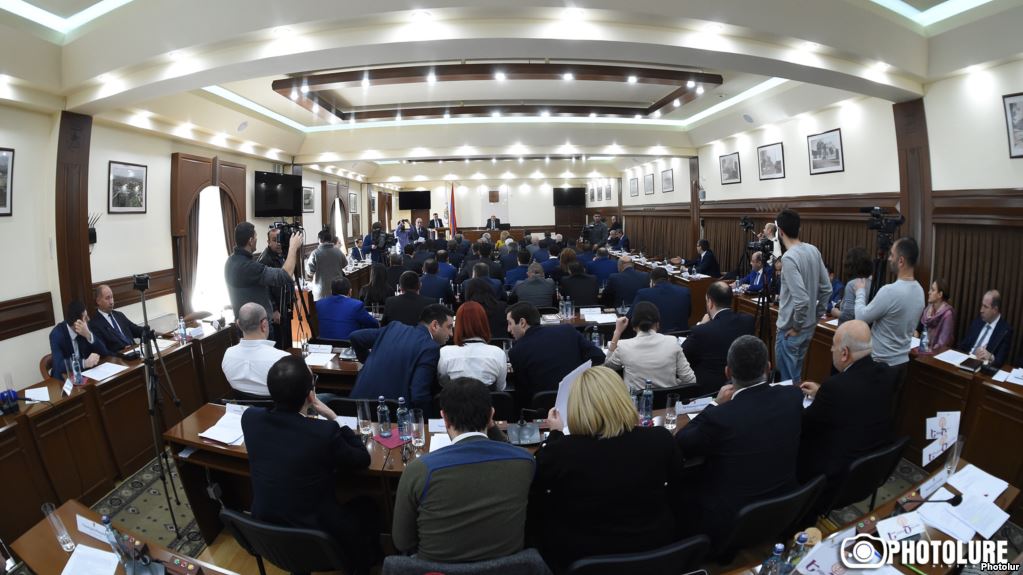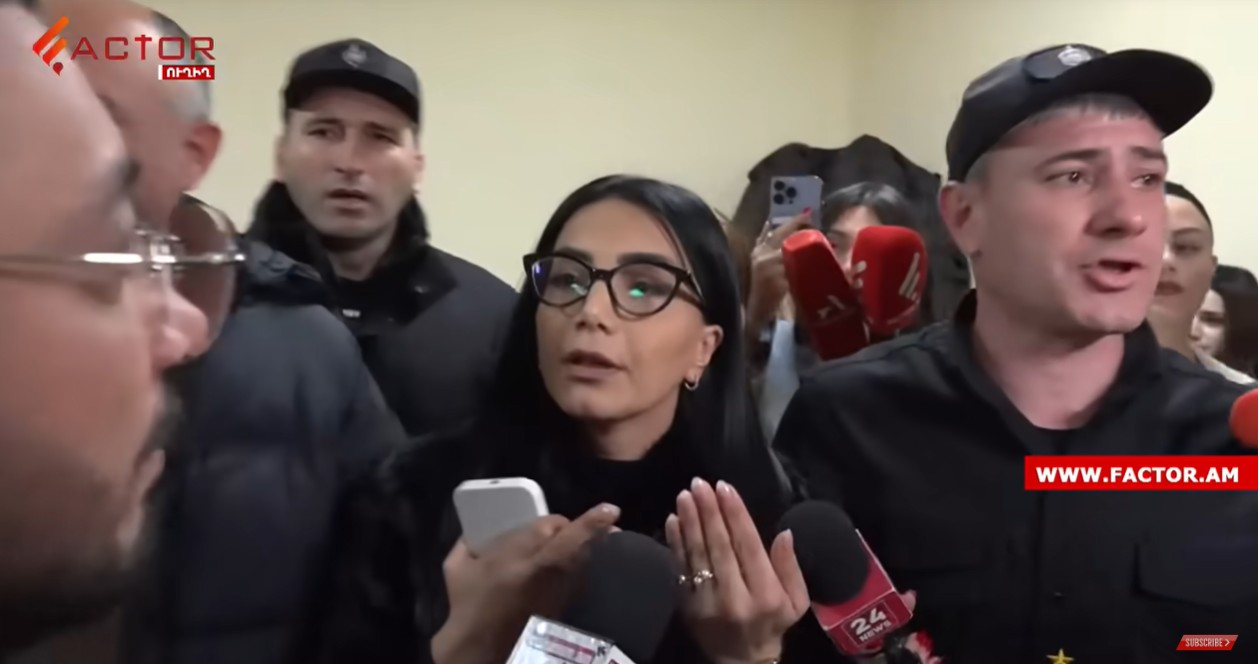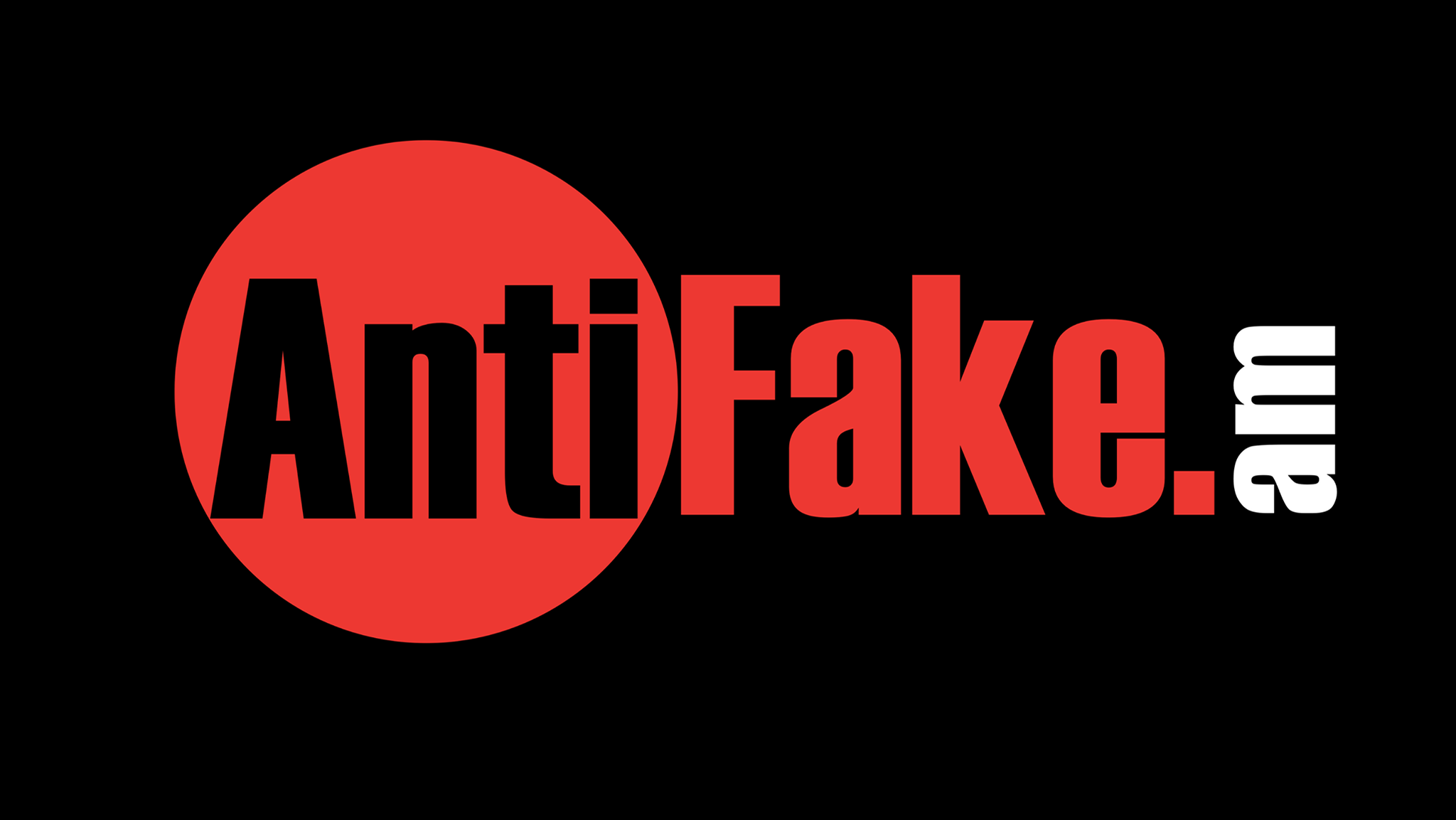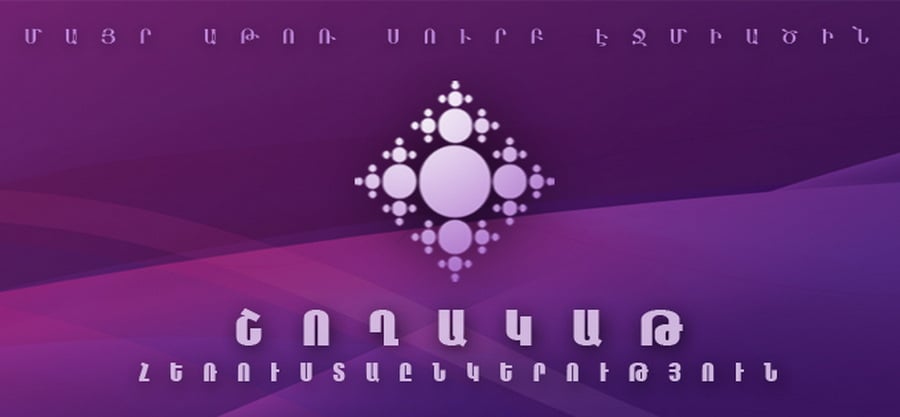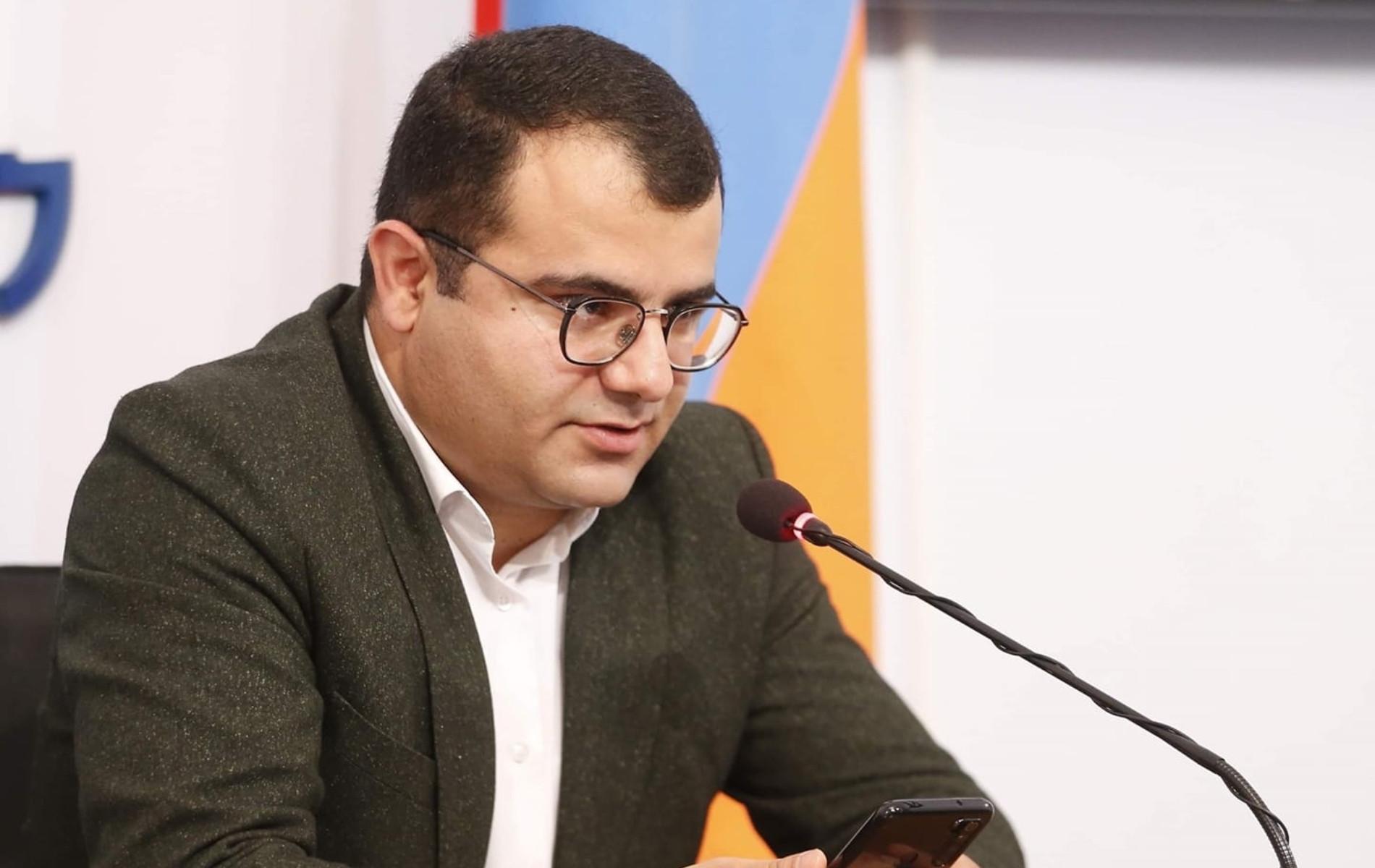When on February 13, samples of openly flowing sewage waters from Noubarashen residential area happened in the municipality by the members of the “Yerkir tsirani” faction in Yerevan City Council, and later with the efforts of the same faction, the journalists witnessed the permissiveness dominating in this body, former Mayor of Yerevan Taron Margaryan decided to “settle up” all these. Changes and amendments were made in the RA Law on “Local self-government in Yerevan city”. Minister of Justice Davit Haroutyunyan’s disposition about sessions of the municipality to be pubic and transparent did not impede the parliament to approve Margaryan and his supporter’s initiative to ban journalist’s free entry to the municipality.
Since the change of the law, the journalists had to follow the sessions of the city council live from a specially allocated room. In certain cases, permission to enter the conference hall could be given by the Mayor or the person who was running the session.
President of “Asparez Journalists’ Club” Levon Barseghyan is sure that with this law the authorities of the day tried to eliminate the philosophy and ideology of the local self-government: “It is clear, that this is a technique to disrupt freedom of information, moreover, public participation. They gerrymander the word “public”, saying that the sessions are broadcast live, you can sit and watch, but in all the Armenian language dictionaries, the word “public” means open, with people’s participation, in front of people’s eyes. ”
But it turns out that Haik Maroutyan, who was elected as a Mayor after the revolution, does not think so. In a conversation with us he says, “At this moment live-stream is provided with cameras; it is being broadcast during the whole session and whatever you need you, can take from there. Let us see, that in the whole world during the work of the Parliament, the same is in our parliament or during the Government sessions journalists are not everywhere, i.e. this is a matter of discussion.”
Haik Maroutyan, in fact, does not see any difference between city council and Government/parliament. Whereas, the city council is to listen and discuss the problems of the public, and it supposes participation of the public in its work. The new Mayor is not familiar with the international experience, either.
The city council (Landtag) in Berlin, Germany, is fully open for the visitors. Each person, after a short search, could enter, talk to the members of the council, to participate in the meetings of the commissions or in public hearings. Our correspondent managed to talk to Dani Freimark, member of the Berlin city council: “The preside is informed that the session will be videotaped, and no problem. You can take photos, videos. It is normal, absolutely normal. And it is a necessity, because we work for people, we do not work for ourselves.” Here, in the conference hall of the plenary sessions special places are allocated for the journalists and the visitors.

What is the set-up at the conference hall of the Yerevan city council? There is a stage for the mayor. In the center, there is a set-up of school-like desks which rooms 65 members; on both sides, next to the wall seats the staff of the municipality – mayors eight advisers, three deputies, 22 heads of departments, heads of four commissions, every two months – 12 head of administrative districts, the chief architect, assistants, staff secretary with two deputies, etc. Before the aforementioned legislative changes, the mass media representatives were to fit in the back of the hall. Then it was banned as well. During the last four years, the number of journalists accredited to the municipality reduced from 80 to 62, but even one fourth of hem cannot fit in the hall, let alone the citizens’ participation.
Under these conditions, a number of decisions were made in the municipality, without participation of the public. Moreover, there is a big gap in the RA “Law on local self-government”, which allows the mayor to make an individual decision, without consulting the council. We do not know where the limit is that the mayor can approve certain projects individually. Under these conditions, in 2015 the mayor made 3167 decisions, and the council made only 135; in 2016 respectively 3760 and 168 decisions, in 2017 – 3815 and 127; in 2018, until October 10 – 3356 and 52 decisions. Moreover, majority of the decisions by the mayor concerned construction permissions and allocation of lands. Whenever a project is included on the agenda of the council sessions, it goes through four standing commissions, and only after receiving a conclusion, it is included in the council session. What decisions have been made by the council since 2015: mostly allocation of lands, alienation, changing the purpose of land use, organizational issues related to the work of the council, awarding medals, installation of memorial boards. From 2015 until October 10, 2018, only five decisions related to the improvement of the city, and, e.g. transport issues exclusively refer to allocation of parking areas.
When receiving information about all these, the journalists very often have difficulties. In accord with the CPFE 2018 3rd quarterly report, during the past nine months, the following violations by the municipality against the mass media representatives were recorded: one case of pressure, one case of discriminatory attitude, three cases of violating the right to receive and disseminate information. As of now, there are three court cases against the municipality, again with the participation of mass media: one is about impeding a journalist’s professional activity, the other two about violating the right to receive and disseminate information.
In an interview with us, Gevorg Tosounyan, journalist from “Civilnet” states, that during his whole activity as a journalist the most challenging, especially in correspondence, has been the municipality: “My topics suffered, because the answers were always late, or did not arrive. The issue always reached whether I should sue them or not.” Armine Gevorgyan, correspondent from public radio states, “It happens that before you receive the answer, the topic is not actual any longer, i.e. the letter that we write, becomes useless.”
Lusine Arakelyan, PAP faction secretary of the council, also thinks that everything should be open and transparent for the media outlets, and their work should be regulated: “There should be media outlets; they should cover materials, but how to organize so that the work of the council is not disrupted, as the conference hall is small and narrow.” Ani Samsonyan, member of the “Luys” faction in the council thinks the problems should be solved through changing the format of the hall. Levon Barseghyan sums up, “What s needed? One chair. When you put 100 chairs and see that during the sessions a lot of people remain standing, then you need 150 chairs. In close to dictatorial/authoritarian systems the authority is not inclined to speak or hear much, they take efforts to close the matter with “we know better than you do” formula, and they try to finish with that, to cut the story short. Now it is time to review all that.”
HASMIK BUDAGHYAN
CPFE expert

